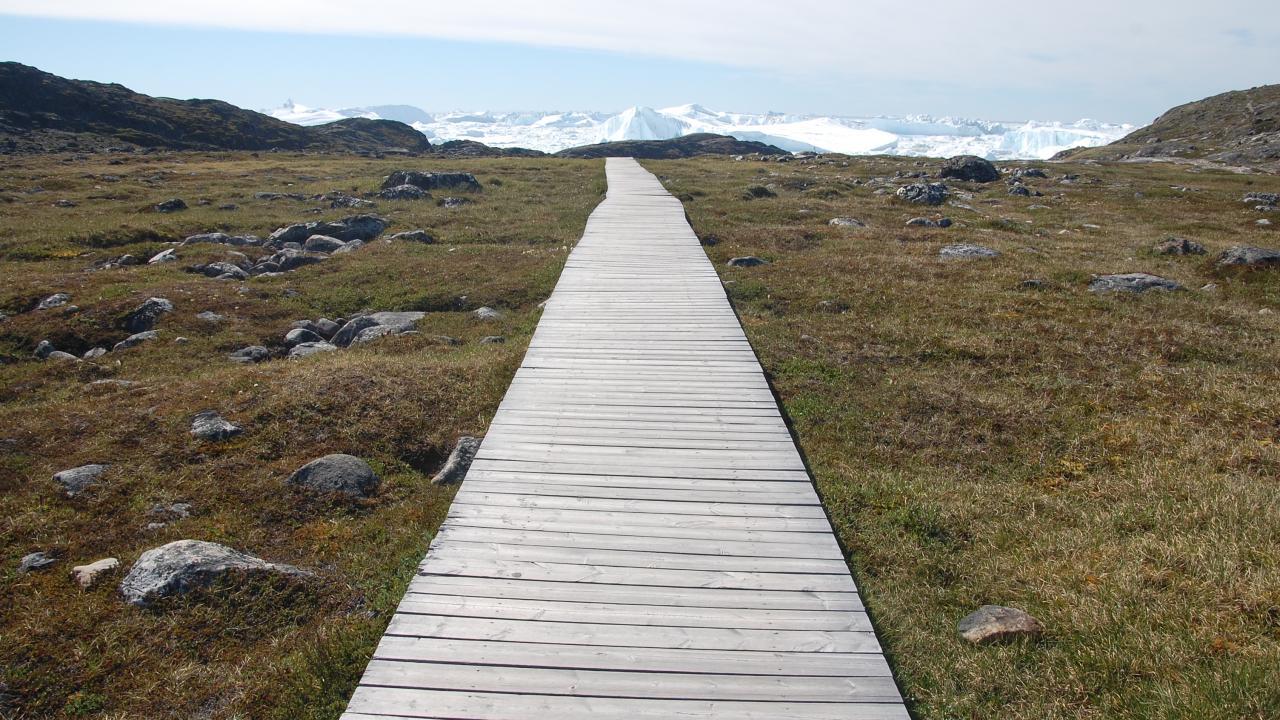
Inuit Foodways Connect Colleges and Continents
National Science Foundation Funds Study of Fermented Foods in Greenland
Connections that UC Davis scholars built across campus and continents have led to a $298,000 National Science Foundation award to engage with Inuit fermenters in South Greenland and support them in naming the desires, obstacles, and concerns for creating a resurgence in Inuit fermented foods. Their research is part of “Navigating the New Arctic,” one of NSF's 10 Big Ideas.
The project is co-directed by Jessica Bissett Perea, associate professor of Native American studies in the College of Letters and Science, and Maria Marco, professor of food science and technology in the College of Agricultural and Environmental Sciences, in collaboration with Aviaja Lyberth Hauptmann, an assistant professor at the University of Greenland, Ilisimatusarfik, and Stephanie Maroney (Ph.D., cultural studies, ’18), Mellon Public Scholars Program Manager at the UC Davis Humanities Institute.
“Our project explicitly refuses extractive research models and instead centers conversations with South Greenlandic communities about how to support and generate Inuit-led projects grounded in Inuit knowledges to their benefit,” said Perea, who is Denaʼina and a member of the Knik tribe from southcentral Alaska. “In these times, research has to be done differently than in the past, and part of that is respecting Indigenous Peoples’s lived experiences and expertise. There is a growing awareness in academia regarding the need to promote equity in research and we hope ‘Navigating the New Arctic’ is part of that.”
Marco added, “We’re not going in as experts, but to listen to the community.”
While this is a planning grant, it could pave the way for deeper collaborations with Inuit communities in Greenland, the University of Greenland, Ilisimatusarfik, and additional support from the NSF, team members said.
The research and ensuing award developed through multiple channels and connections.
In 2019, Hauptmann, a microbiologist whose work has been widely covered in both scientific and popular media, was looking for an institution to do a postdoctoral fellowship where she could learn more about fermentation. “After finishing my Ph.D. in microbial ecology of snow and ice environments, I wanted to work with something closer to my community,” said Hauptmann, who is Inuk from southern Greenland. “When I moved back to Greenland, I started looking at our food, and then at fermented food, because that’s where the microbes are.” Hauptmann reached out to Marco, an expert on fermentation, to discuss using a Carlsberg Foundation postdoctoral fellowship to work with Marco.
Hands-on class for students
In early 2020, Marco began searching for a UC Davis colleague to team up with for Science, Humanities and Arts: Process and Engagement (SHAPE), made possible through an Andrew W. Mellon Foundation award that funds and supports classes taught jointly by science and humanities faculty. She found Perea, a musicologist, and the two developed the class “Radical Story: Performing Relational Approaches to Inuit Food Fermentation and Food Security.”
Marco also connected with Maroney through fermentation workshops that Maroney was leading at the Yolo County Library. Her expertise with community-engaged research, food fermentation practices, and the cultural aspects of human microbiome research made her a perfect addition to the team. Once the four came together, they launched the UC Davis Humanities Institute-funded research cluster, Radical and Relational Approaches to Fermentation and Food Sovereignty. The team collaborated with the UC Davis Feminist Research Institute to submit the NSF grant application.
This fall, the foursome are co-teaching the “Radical Storywork” SHAPE course, which features hands-on, interdisciplinary learning experiences such as making sauerkraut, culturing microbes on petri dishes, knowing-feeling Native presence on unceded Patwin lands currently occupied by UC Davis (via the Patwin Prayer Stone and Native American Contemplative Garden), and musicking with visiting artists-in-residence Pamyua, an Inuit group from Alaska and Greenland that merges traditional drumdance melodies with rhythm and blues vocal styles.
“What initially brought us together was the SHAPE course and serendipity,” Perea said. “I had no previous scientific understanding about fermented foods, but I did grow up with it. You can’t go to a Native event without food and music.”
The team will travel to Greenland to meet with Inuit knowledge-holders and engage other food authorities to identify critical research needs as it pertains to food security. They emphasize that Inuit communities have sustained themselves in the Arctic for millennia through systematic knowledge about the ecosystem of which they are a part. This planning grant hopes to reverse negative narratives about Inuit fermented foods by creating positive, factual, desire-based feedback loops rooted in Inuit knowledge.
“For people in different areas, but with common interests, to find each other and the kind of space and support we have isn’t easy,” Maroney said.
Added Marco, “UC Davis brings a transdisciplinary approach to projects like this. It’s something unique that UC Davis does very well.”